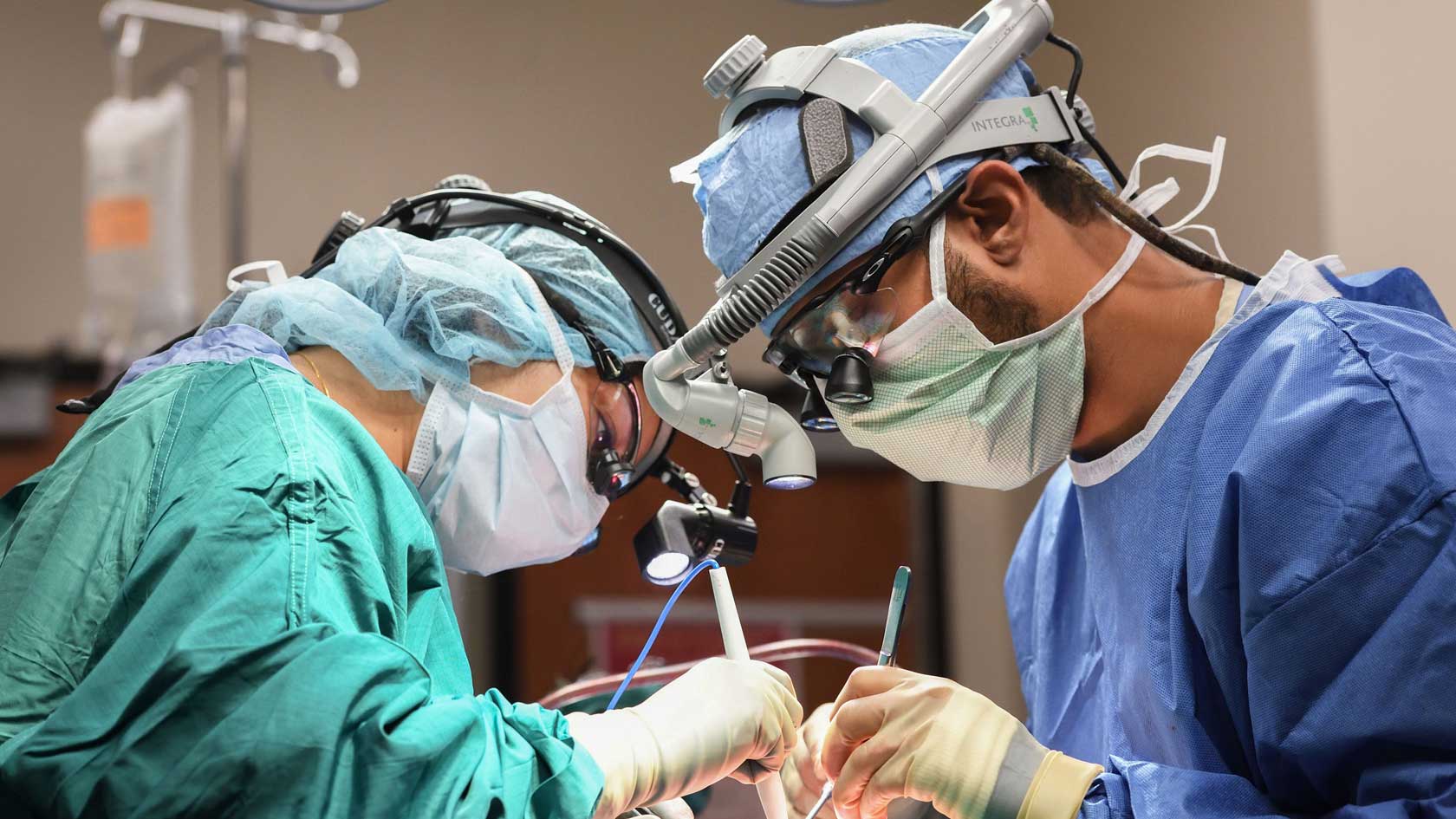Latest Trends in Otolaryngology: What Patients Should Know
Latest Trends in Otolaryngology: What Patients Should Know
Blog Article
Discovering the Area of Otolaryngology: What to Anticipate When You Speak With an ENT
Otolaryngology, commonly referred to as ENT, includes the diagnosis and therapy of nose, ear, and throat disorders. For those experiencing relevant problems, consulting an ENT professional can offer quality and alleviation. Recognizing what to expect throughout such consultations is crucial for reliable interaction and treatment. This summary will certainly describe essential elements of the ENT experience, consisting of typical factors for brows through and the processes associated with diagnosis and therapy.

Understanding Otolaryngology: An Introduction
Otolaryngology, commonly described as ENT (Nose, ear, and throat) medicine, is a customized branch of medicine that concentrates on the diagnosis and treatment of problems influencing these vital locations of the body. This field encompasses a large range of conditions, including those relevant to hearing, balance, respiratory feature, and speech. Otolaryngologists are educated to take care of both medical and medical treatments, utilizing innovative methods and modern technologies. Their competence prolongs beyond typical conditions, resolving problems such as allergies, sinus infections, and hearing loss. Furthermore, they play an important role in the management of head and neck cancers, providing comprehensive treatment tailored to individual patient demands. On the whole, otolaryngology stays necessary for keeping health and lifestyle in afflicted people.
Common Factors to See an ENT Professional
Lots of individuals seek the competence of an ENT expert for a range of factors, reflecting the varied nature of conditions that impact the nose, ear, and throat. Common issues include persistent sinusitis, which frequently brings about consistent nasal blockage and facial pain. Allergic reactions and their associated symptoms, such as itching and sneezing, also motivate visits to these professionals (Hearing). Hearing loss, whether abrupt or steady, is another considerable factor for appointment. In addition, people may look for analysis for throat problems, consisting of persistent hoarseness or ingesting troubles. Sleep apnea, characterized by disrupted breathing during rest, is regularly dealt with by ENT experts. Each of these conditions highlights the significance of specialized treatment in managing intricate ENT-related wellness problems
Planning for Your ENT Appointment
When preparing for an ENT consultation, it is important to collect appropriate details and consider any certain issues. People should compile a thorough case history, consisting of previous ear, nose, or throat concerns, surgical procedures, and existing medications. Documenting signs-- such as severity, duration, and frequency-- can provide beneficial understandings for the ENT specialist. Furthermore, people must prepare a checklist of concerns they want to ask, making certain that all problems are dealt with throughout the browse through. Bringing along any type of pertinent medical records or test outcomes can better help the ENT in understanding the client's problem. Patients need to verify their consultation details, including day, time, and location, to minimize any type of final complication. Proper prep work can enhance the efficiency of the consultation and bring about far better results.
What to Anticipate Throughout the Consultation
As the examination starts, the individual can anticipate to engage in a detailed discussion with the ENT professional about their signs and case history. The expert will inquire regarding the period, frequency, and extent of signs such as hearing loss, nasal blockage, or aching throat. Additionally, the patient's previous medical conditions, medicines, and any pertinent family members background will be assessed, assisting the specialist in forming a total understanding of the client's health and wellness. The ENT might likewise ask regarding way of living variables, such as direct exposure to allergens or irritants. This open discussion develops a structure for the assessment, ensuring that the person's issues are resolved and establishing the stage for any kind of required assessments or recommendations for treatment.
Diagnostic Examinations and Procedures in Otolaryngology
A variety of analysis examinations and treatments are important in otolaryngology to properly evaluate and diagnose problems impacting the throat, nose, and ear. Typical tests wikipedia reference include audiometry, which measures hearing feature, and tympanometry, evaluating center ear stress. Nasal endoscopy allows visualization of the nasal passages and sinuses, while laryngoscopy takes a look at the throat and vocal cables. Imaging methods, such as CT scans and MRIs, give in-depth sights of head and neck structures. Allergic reaction screening may additionally be conducted to identify triggers for sinus or breathing concerns. These analysis devices enable ENT experts to develop an extensive understanding of individuals' problems, making sure tailored and reliable monitoring strategies. Appropriate diagnosis is essential for successful therapy end results in otolaryngology.
Treatment Choices Provided by ENT Specialists
ENT specialists provide a variety of therapy choices tailored to address certain conditions impacting the throat, ear, and nose. These treatments vary from conservative methods, such as drug and way of living adjustments, to more intrusive treatments. Allergic reactions may be handled with antihistamines or immunotherapy, while persistent sinus problems could need nasal corticosteroids or sinus surgical procedure. For hearing loss, ENT professionals commonly advise hearing help or surgical treatments like cochlear implants. In instances of throat conditions, alternatives can include speech treatment or operations to remove blockages. Furthermore, they may provide assistance for handling sleep apnea, consisting of using CPAP tools or surgical interventions. Generally, the goal is to enhance individuals' lifestyle with individualized treatment and effective treatment strategies.
When to Look For Follow-Up Care With an ENT
Identifying when to seek follow-up treatment with an ENT specialist is essential for handling ongoing signs or problems connected to throat, ear, and nose problems. People ought to consider setting up a follow-up visit if signs linger in spite of first treatment, such as persistent ear discomfort, nasal congestion, or throat pain. Adjustments in hearing, balance issues, or uncommon nasal discharge may additionally require more analysis. Furthermore, if a patient experiences side impacts from prescribed medications or has undergone a surgical treatment, follow-up treatment is very important to keep track of recuperation and deal with any problems. Prompt appointments can guarantee reliable administration of problems, prevent potential difficulties, and find out here now supply comfort relating to one's wellness. Seeking follow-up treatment promotes aggressive health administration in otolaryngology.
Frequently Asked Inquiries

What Certifications Should I Search for in an ENT Specialist?
When looking for an ENT professional, one need to look for board certification, relevant experience, and solid individual reviews. In addition, reliable communication abilities and a compassionate technique can considerably enhance the general treatment experience.
Just how Do I Pick the Right ENT for My Needs?
Choosing the ideal ENT specialist entails examining their credentials, experience, and individual reviews (Voice). It is vital to consider their communication design and approach to therapy, guaranteeing they line up with the individual's details health demands and preferences
Are There Any Type Of Risks Related To ENT Procedures?
The dangers related to ENT procedures might consist of infection, blood loss, anesthetic issues, and potential damages to bordering frameworks. Clients must talk about these risks with their medical professional to recognize individual worries and warranty notified choices.
Exactly How Can I Manage Anxiety Before My ENT Visit?
To take care of stress and anxiety before an appointment, individuals can exercise deep breathing exercises, imagine positive results, prepare questions ahead of time, and look for assistance from close friends or family, promoting a feeling of reassurance and peace.
What Should I Do if I Experience Adverse Effects From Treatment?
The person should without delay report them to their medical care provider if side effects from therapy happen. Adjustments to therapy or added treatments might be required to assure safety and security and effectiveness in managing their problem - ENT Clinic. As the examination begins, the individual can expect to engage in a comprehensive conversation with the ENT professional regarding their symptoms and clinical history. These diagnostic check my reference devices make it possible for ENT professionals to develop a comprehensive understanding of patients' conditions, making sure customized and efficient monitoring plans. ENT professionals use a selection of therapy options tailored to attend to details problems impacting the ear, throat, and nose. When looking for an ENT specialist, one must look for board qualification, appropriate experience, and strong person testimonials. Picking the right ENT specialist involves reviewing their certifications, experience, and client testimonials
Report this page